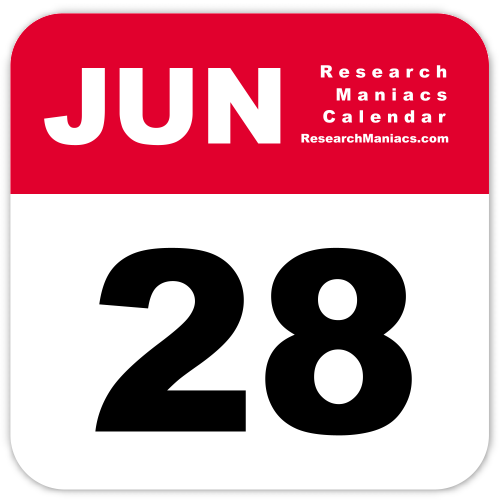Netherlands is
India’s natural partner: Narendra Modi
- Describing the Netherlands as India’s “natural partner” in its economic development, Prime Minister Narendra Modi on Tuesday said the bilateral ties with the country’s major trading partner will grow rapidly.
- After the bilateral talks between Prime Minister Modi and his Dutch counterpart Mark Rutte, the two countries signed three MoUs in the fields of social security, water cooperation and cultural cooperation.
- Ahead of the talks, Mr. Modi thanked the key European nation for backing India’s Missile Technology Control Regime (MTCR) membership.“Because of your support India got the membership of the MTCR,” Mr. Modi said.India joined the MTCR as a full member last year. MTCR membership enables India to buy high-end missile technology and also enhances its joint ventures with Russia.
- “Ties between India and the Netherlands are very old. Our bilateral relations are very strong,” he said.
- Mr. Modi said the Netherlands is the 5th largest investment partner globally and in the last three years it has emerged as the third largest source of FDI for the country.
- In the joint address, Dutch Prime Minister Rutte said India’s emergence as a global power is a “welcome development from both political and economic point of views.”He commended India for its commitment to renewal energy and to the Paris climate agreement. He praised Mr. Modi for announcing major sustainable initiatives like ‘Clean India’ and ‘Make in India’.“The Netherlands is a key partner to help India achieve its goals. India is now a global economic power. It is world’s second biggest economy and Indian market has a lot of potential. We have a plenty to offer to India too,” he said.
- This year, the two countries are celebrating 70 years of the establishment of Indo-Dutch diplomatic relations. Mr. Modi, during his day-long visit, will also call on King Willem-Alexander and meet Queen Maxima. He would also be meeting with CEOs of major Dutch companies and encourage them to join the Indian growth story.
Rise in crocodile nestings in Odisha elates ecologists
- The steady increase in sightings of salt water crocodile nests in the swampy creeks of the Bhitarkanika National Park on the Odisha coast for three consecutive seasons has elated ecologists, who have hailed this achievement as the outcome of long-term conservation efforts.
- The wildlife wing of the State Forest Department has come across 80 crocodile nests in their wild habitats in 2017 in Bhitarkanika, compared with 75 in 2016 and 70 in 2015.
- Bhitarkanika is said to house 70% of India’s estuarine or salt water crocodiles, conservation of which was started over four decades ago in 1975.
Long-term effort
|
- The Bhitarkanika National Park is a place where the rivers Brahmani, Baitarni, Dhamra and Pathsala meet the Bay of Bengal.
- The mangrove wetland and a large number muddy creeks provide perfect conditions for estuarine crocodiles to nest. Moreover, the nesting sites of crocodiles are located at places where tidal waves cannot wash away the eggs.
- “Unlike other crocodiles, estuarine crocodiles lay eggs by creating a mound made of leaves of a particular mangrove species, which are plentifully available in Bhitarkanika. Other crocodile species dig the soil for laying eggs,” said Dr. Kar.
- Crocodiles start laying eggs by mid-May, with an incubation period of 75 days. The female crocodile guards the nest devotedly for three months. During this period, she tends to attack anything that approaches the nest.
- Hatchlings come out in the month of August. An average of 25-30 eggs are found in a nest and 30% of hatchlings may finally survive. hitarkanika.
- The national park is also home to the only white-coloured captive crocodile named Gori. Many albino crocodile species can be found in the Bhitarkanika’s waters. The park also houses the world’s largest salt water crocodile, measuring about 23 feet — this was recorded in 2006 in the Guinness World Records.
- Dr. Kar said, “Salt water crocodiles devour predatory fishes. Hence, more fish thrive with the presence of crocodiles in the water.” He added, “The existence of salt water crocodiles depends on dense wet mangrove forests and the steady discharge of fresh water into the sea. Odisha has the distinction of having all three Indian species of crocodiles. ”
Uranus’ magnetic field flips on and off: study
Unlike the earth, the icy giant rotates on its side and the axis of its magnetic field is tilted too
- Scientists have found that Uranus’ magnetic field gets flipped on and off like a light switch every day as the planet rotates.
- Researchers from Georgia Institute of Technology in the U.S. made the discovery based on data from NASA’s Voyager 2 spacecraft. “The magnetosphere is ‘open’ in one orientation, allowing solar wind to flow into the magnetosphere; it later closes, forming a shield against the solar wind and deflecting it away from the planet,” researchers said.
- This is quite different from Earth’s magnetosphere, which typically only switches between open and closed in response to changes in the solar wind.Since the alignment of Earth’s magnetosphere is always toward the sun, the magnetic field threaded in the ever-present solar wind must change direction in order to reconfigure Earth’s field from closed to open. This frequently occurs with strong solar storms.
- Uranus lies and rotates on its side, and its magnetic field is lopsided — tilted 60 degrees from its axis. Those features cause the magnetic field to tumble asymmetrically relative to the solar wind direction as the icy giant completes its 17.24-hour full rotation.
Other News :
- A major global cyber attack dubbed "GoldenEye" or "Petya" on Tuesday disrupted computers at Russia's biggest oil company, Ukrainian banks and multinational firms with a virus similar to the ransomware virus that last month infected more than 300,000 computers.

No comments:
Post a Comment